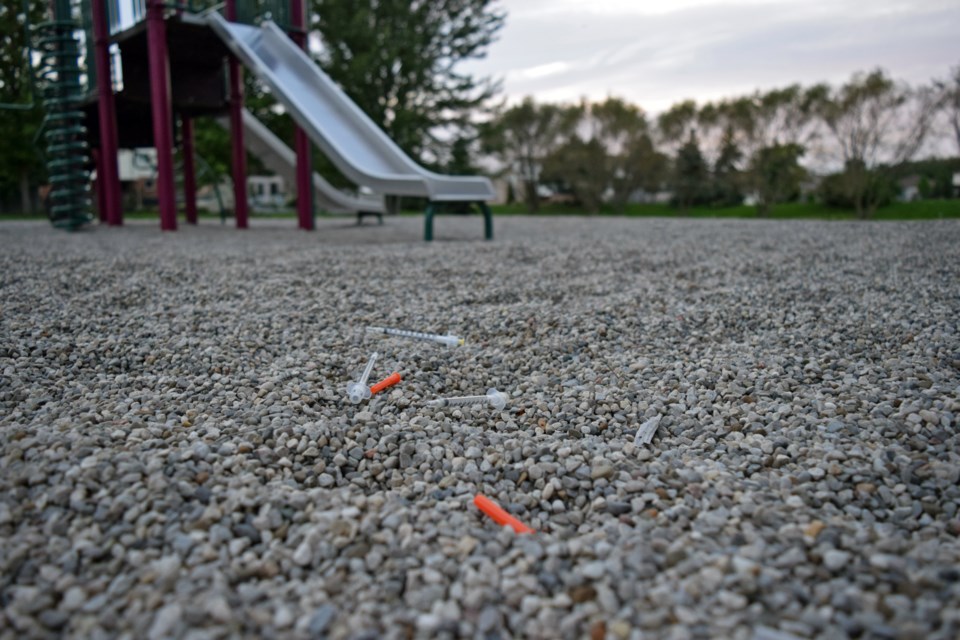The number of used needles found around Prince George is a hot-button issue for many people in the community, and a local group is looking to combat the problem by creating a needle buy-back program.
Coun. Brian Skakun, Craig Briere (owner of the Prestige Treasure Cove Hotel) and local businessmen Barry Boehmer have formed a group to get a needle buy-back program up and running in Prince George.
 The number of needles collected in downtown Prince George in the month of August. (via Downtown Seasonal Bylaw Compliance Team)
The number of needles collected in downtown Prince George in the month of August. (via Downtown Seasonal Bylaw Compliance Team)A similar program was launched in Kamloops by two local residents, Caroline King and Dennis Giesbrecht. It offers drug users a nickel in return for each used needle brought back to them.
“We are going to try and partner with one of the social service providers to try and get on board with us and run the program,” says Skakun. "Folks are just being bombarded with these needles and there seems to be no accountability for the source of where the needles come from, so people are very upset and frustrated.”
Skakun says Northern Health needs to do more to prevent the spread of needles and notes he was recently contacted by a downtown business owner who found 75 needles around his building one morning.
“The real key to it is to have some sort of sustainable program and we can, hopefully, get some of the social services providers involved so that people know that they can get a small return for their needles,” says Skakun.
Northern Health offers harm reduction programs not only in Prince George but throughout the region. The health authority provides individuals with needles and sterile equipment in an effort to decrease the rates of hepatitis, HIV and other bloodborne pathogens.
“We know by data and evidence that when we distribute safe and clean supplies to individuals, we not only decrease the rates of these infections in our community but we help to work to engage people in our services,” says Reanne Sanford, Northern Health’s regional nursing lead for harm reduction.
Sanford says the program also focuses on the recovery of the used needles, and the recovery rate for Prince George actually averages about 90 per cent.
“And so that is fairly consistent to see that kind of return rate for our programs,” she tells PrinceGeorgeMatters.
She says Northern Health also shares the same concerns about needle buyback programs that Interior Health has expressed about the Kamloops model.
“These types of programs haven’t been researched and there is no evidence to support their effectiveness, but more so, there are a lot of unintended harms that can come from a program like this.”
Sanford says Northern Health wants people to dispose of needles through their sites because they are able to offer referrals so people can access health and mental services in one place.
She adds the risk of people poking themselves with used needles could be increased when they are collecting and counting them for a buy-back program.
“I think placing a monetary value on a used needle is really concerning for folks because that might encourage individuals to break into sealed sharps containers or publicly accessible sharps containers,” says Sanford, noting people might steal the used needles to return them for a profit and risk poking themselves in the process.
She says that people may even open new needle packages, without using them, just to be able to return them for a profit.
“Those types of unintended black market situations are real and concerning,” says Sanford, adding that while Northern Health does not support needle buy-back programs they are open to innovative approaches to safe disposal.
“I think something that is also happening is that we are starting to focus on engaging peers and being a part of that solution,” she says. “Northern Health is absolutely at the table and always open to folks from the community who want to be a part of those discussions.”



